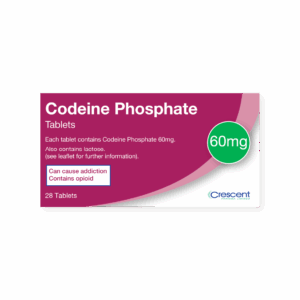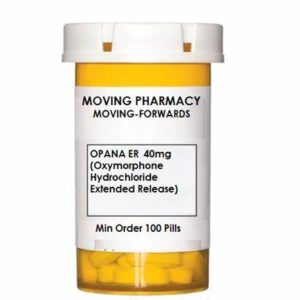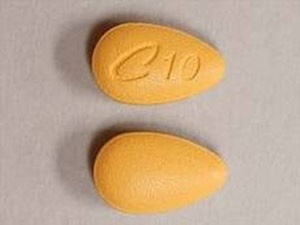Description
How to buy Codeine online?
When you want to buy codeine online, safety and authenticity are paramount.
Our trusted online pharmacy offers authentic codeine medications with safe, fast, and discreet delivery options.
We only source our codeine from licensed pharmacies to ensure quality and effectiveness.

It is often prescribed to treat moderate pain and persistent coughs.
Ordering online allows you to benefit from affordable prices and reliable delivery.
Our simple ordering process protects your privacy and ensures a worry-free experience.
We understand the importance of medication safety.
That’s why we provide detailed information on dosage, possible side effects, and usage to help you take codeine responsibly.
Our customer service team is here to answer your questions and guide you through the purchasing process.
Buying codeine online is not only convenient, but also a safe and reliable option.
Place your order today and receive fast home delivery in discreet packaging.
What is Codeine?
Codeine acts like a prescription opioid that relieves moderate pain while reducing persistent coughing.
It binds to the opioid receptors there, which regulate the brain’s processing of pain signals.
At the same time, it suppresses the cough reflex, improving breathing comfort during illness.
Doctors typically prescribe it in tablet or syrup form, often in combination with other medications.
Patients usually take it in combination with paracetamol or aspirin, depending on the specific treatment required.
At the same time, the body converts the medication into morphine, which actively affects the central nervous system.
As a result, users experience effects such as drowsiness, constipation, or dizziness shortly after taking it.
However, they also run the risk of abuse or addiction, especially if used unsupervised.
It is important to note that healthcare professionals do not recommend codeine for children under 12 years of age due to serious breathing problems.
Therefore, healthcare professionals carefully monitor the dosage while continuing treatment.
How does it work?
Codeine works by altering the brain and spinal cord’s response to pain signals.
After entering the bloodstream, it quickly reaches the central nervous system to act.
At the same time, the liver actively converts some of the codeine into morphine using the CYP2D6 enzyme.
This morphine then binds to opioid receptors in the brain and spinal cord.
As a result, the brain no longer interprets pain signals with the same intensity or urgency.
Thus, people begin to feel relief from moderate pain shortly after taking a dose of codeine.
In addition to its analgesic action, it also reduces coughing by calming the cough center in the brain.
It acts specifically on the spinal cord, which regulates the cough reflex.
Because of this action, the drug is often added to prescription cough syrups.
At the same time, it provides mild sedation by slowing the activity of certain parts of the central nervous system.
This sedative effect helps people feel more relaxed and better during recovery from illness or surgery.
However, the response to codeine varies depending on how the body processes the drug.
Some people produce too little CYP2D6, reducing its effectiveness as a pain reliever.
Others metabolize it too quickly, causing a dangerous buildup of morphine.
Therefore, healthcare professionals are cautious and adjust doses based on metabolism and other risk factors.
As a safety precaution, genetic differences are now taken into account before prescribing codeine-containing medications to certain patients.
What is it used for?
Codeine currently effectively relieves mild to moderate persistent pain.
It also acts as a cough suppressant by calming cough signals in the brain.
Doctors often combine codeine with paracetamol or aspirin to improve pain relief.
However, it is used under supervision to prevent abuse, as it is an opioid.
It is also sometimes used to treat diarrhea, although its use has become less common in recent years.
Acting on the central nervous system, the medication continuously reduces discomfort and cough reflexes.
However, because it can cause drowsiness and addiction, patients must carefully follow dosage instructions.
Healthcare professionals closely monitor codeine use to prevent tolerance and accidental overdose.
Although its effectiveness has been demonstrated in several conditions, users remain cautious about its side effects.
Therefore, it is always advisable to discuss this with your doctor before starting or continuing treatment.
What are the side effects of Codeine?
Codeine often causes drowsiness, making you feel unusually sleepy throughout the day.
It also leads to constipation, making bowel movements difficult and uncomfortable.
Many people experience nausea or vomiting at the beginning of treatment.
Some users also experience dizziness, especially when standing up quickly.
The medication causes a dry mouth by reducing saliva production, making it difficult to speak or swallow.
In some cases, itching or a mild rash can occur, a sign of allergic reactions.
Stomach pain or cramps may also occur, especially at high doses.
Excessive sweating is also an increasingly common problem for some people.
Mood swings, such as anxiety or unusual happiness, may also occur, which can affect daily activities.
Finally, urinary retention may occur, leading to difficulty urinating.
If more severe symptoms, such as slow breathing or confusion, occur, immediate medical attention is essential.
Can Codeine be dangerous?
Codeine is a concern because it acts as a powerful opioid pain reliever.
It poses risks such as dangerously slowed breathing, which can be life-threatening.
Furthermore, regular use of codeine can lead to dependence and addiction.
Combining it with alcohol or other sedatives increases the risks.
Users also often experience side effects such as dizziness, nausea, and constipation.
Healthcare professionals warn that abuse or overdose can lead to serious complications.
Therefore, patients should follow their prescriptions carefully and communicate openly with their doctors.
In summary, it carries risks that require careful and responsible use under all circumstances.
Is Codeine Addictive?
Codeine is addictive through its ongoing interaction with the brain’s reward system.
Tolerance develops as it continues to be used for pain or cough relief.
Therefore, higher doses are required over time to feel the same effect.
Users experience withdrawal symptoms when they abruptly stop taking codeine.
Many people develop a physical dependence without realizing it.
Therefore, doctors advise patients to follow prescriptions carefully and avoid abuse.
In short, the medication poses a risk of addiction that requires careful management.
Can you overdose on Codeine?
A codeine overdose occurs when doses exceed those prescribed or recommended.
Because codeine is a depressant, it dangerously slows brain and respiratory function.
These extreme drowsiness, confusion, or difficulty breathing, all warning signs.
The risk also increases when it is combined with other substances such as alcohol or sedatives.
Therefore, anyone who suspects an overdose should seek immediate medical attention.
Generally, codeine is very harmful if abused or overused; therefore, caution is advised.
Is it legal?
In the United States, authorities closely monitor codeine use due to its potential for abuse.
Healthcare professionals only prescribe the medication when needed, ensuring that patients receive the correct dosage.
Pharmacies dispense the medication products under strict regulations to prevent abuse.
The government classifies codeine differently depending on its concentration and formulation.
For example, pure codeine is classified as Schedule II, requiring stricter control.
In contrast, low-dose combinations are classified as Schedule III or V, allowing for more flexible access.
Patients must have a valid prescription to legally obtain medications containing codeine.
Additionally, healthcare professionals educate patients about safe use and potential risks.
Thus, the system balances patient care with effective drug abuse prevention.
Does Codeine show up on a drug test?
Codeine is detected in drug tests because it is a member of the opioid family.
Many tests target opioids in drug screening, including codeine.
Urine tests typically detect both codeine and its breakdown product, morphine.
These tests can therefore identify recent codeine use within three days.
Blood and hair tests also reveal the presence of codeine, depending on the time of day.
Because the medication is broken down into morphine, some tests detect both substances simultaneously.
However, specialized tests can distinguish it from other opioids if necessary.
Therefore, drug tests often detect its use in many situations.
Who should avoid Codeine?
People allergic to opioids or codeine itself should avoid codeine.
Doctors recommend that children under 12 and some adolescents following surgery avoid it.
Pregnant or breastfeeding women are often advised not to use it unless prescribed by a doctor.
People with respiratory problems such as asthma or COPD should avoid codeine due to its risks.
Again, People with liver or kidney problems should also avoid it to avoid complications.
Also, people with addiction or a history of substance abuse should avoid it.
Finally, people currently taking other medications that may interact with codeine should avoid codeine.
Therefore, it is essential to always consult a doctor before starting to take it.
Does hydrocodone have codeine in it?
Hydrocodone does not contain codeine. It acts as a stand-alone opioid.
Although both medications relieve pain, they work separately in the body.
Hydrocodone is often combined with acetaminophen to enhance its pain-relieving effects.
The medication, on the other hand, works alone or is sometimes combined with other medications.
Therefore, hydrocodone and it are not used together in the same pill.
Furthermore, hydrocodone is used to treat moderate to severe pain.
The drug, on the other hand, is typically prescribed for mild to moderate pain or to relieve coughs.
Understanding the differences helps patients and doctors choose the right option.
Hydrocodone does not generally contain this drug in its formulations.





Gabriel Amara –
Extremely happy with the purchase.